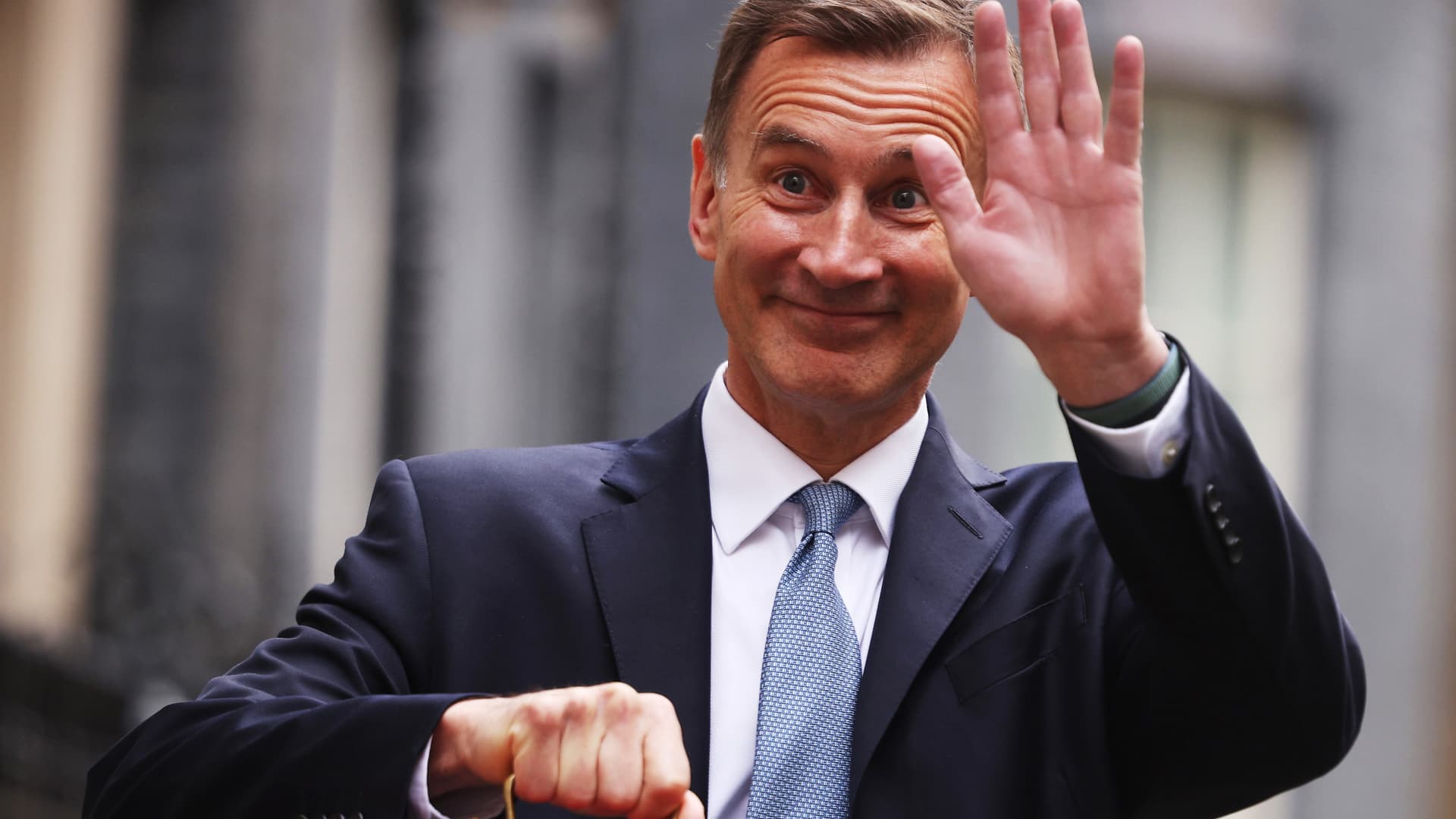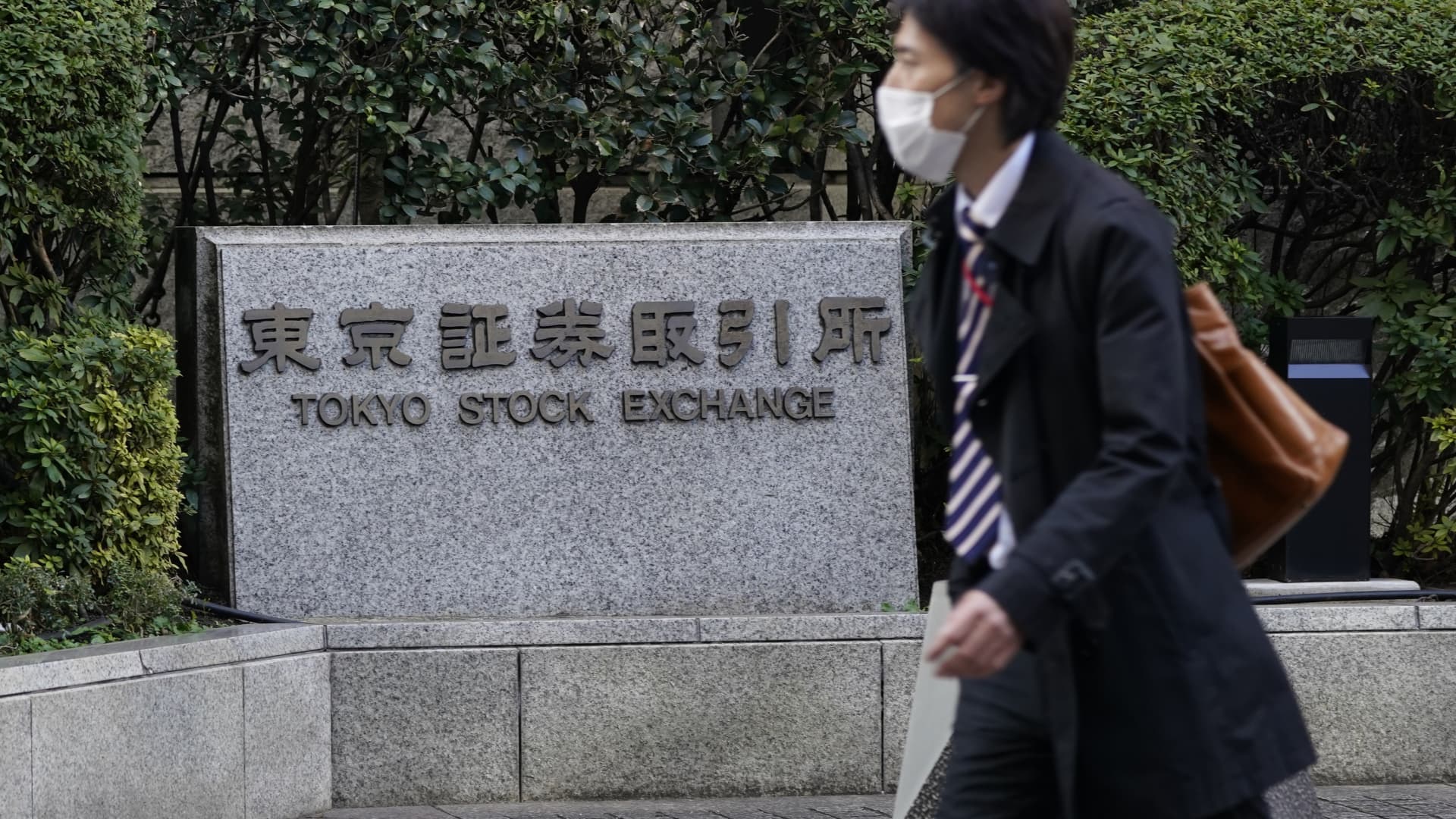UK will not enter a recession this year, Finance Minister Jeremy Hunt says in budget speech
U.K. Finance Minister Jeremy Hunt said Wednesday that the economy would no longer enter a technical recession in 2023, based on new forecasts from the independent Office for Budget Responsibility.

British Finance Minister Jeremy Hunt that the U.K. economy would not enter a technical recession in 2023, while announcing the government's spring Budget.
Dan Kitwood | Getty Images News | Getty Images
LONDON — British Finance Minister Jeremy Hunt said Wednesday that the U.K. economy would not enter a technical recession in 2023, as was previously anticipated.
The updated outlook was based on new forecasts from the independent Office for Budget Responsibility, Hunt said.
A technical recession takes place when a country observes two consecutive quarters of contractions in its real GDP.
The Chancellor of the Exchequer said that the U.K. economy was "proving the doubters wrong," following earlier predictions, including from the Bank of England, that the country was facing its longest-ever recession.
In its revised outlook, the OBR said it now predicts that the economy will contract by 0.2% this year, before growing by 1.8% in 2024 and 2.5% in 2025. During the Autumn Statement last November, the OBR had said that the economy would shrink by 1.4% in 2023.
The OBR also on Wednesday said that it expects inflation to fall to 2.9% by the end of 2023, meaning that the pace of price rises would be slower than previously anticipated.
The rate of inflation currently stands at 10.1%, having fallen from a high of 11.1% in October. However, it still stands well above the target level of 2%.
"They forecast we will meet the prime minister's priorities to halve inflation, reduce debt and get the economy growing," Hunt said of the OBR.
Workforce reforms
In a slew of budget announcements, Hunt raised the pension allowance for higher earners in an effort to stem early retirement and improve the country's chronic worker shortage.
The Chancellor of the Exchequer increased the cap on tax-free annual pension contributions to £60,000 ($73,000) from £40,000. He also abolished the lifetime allowance on tax-free pension pots, which was previously capped at £1 million.
No one should be pushed out of the workforce for tax reasons.
Jeremy Hunt
finance minister of the U.K. Conservative Party
The new tax-free pensions allowance aims to reduce the number of high-earning, older professionals — especially doctors — who leave the workforce ahead of the state retirement age. The measure follows a six-year freeze on the annual and lifetime limit announced in 2020.
"I don't want any doctor to retire early because of the way pension taxes work," Hunt said, announcing the country's annual spending budget in the House of Commons.
"[But] the issue goes wider than doctors. No one should be pushed out of the workforce for tax reasons," he said.
In the U.K., taxpayers who save more than the lifetime allowance must pay a 25% levy on additional income from their pension or a 55% tax, if they withdraw it as a lump sum.
Childcare support
The finance minister also announced a package of support for working parents, many of whom have been deterred from returning to work due to U.K. childcare costs — which rank as the highest in the world, according to the OECD.
An expansion of free childcare support will provide an extra 30 hours a week of care to working parents of children over the age of nine months. Previously, the free childcare allowance was available only to parents of three and four-year-olds.
Hunt described the reforms, which will be introduced in stages, as "the most significant improvements to childcare provisions in a decade."
"I don't want any parent with a child under five to be prevented from working if they want to, because it's damaging to our economy and unfair, mainly to women," he said.
The changes come as the U.K. economy, already beleaguered by sky-high inflation and widespread industrial action, faces labor shortages and record numbers of workers reporting long-term sickness.
The number of "economically inactive" people — those neither working nor looking for a job — between the ages of 16 and 64 rose by more than 630,000 from 2019 to 2022.
Unlike other major economies, recent U.K. data shows no sign that those lost workers are returning to the labor market, even as inflation and energy costs exert huge pressure on household finances.
Tax cuts on hold
Earlier Wednesday, the Conservative government also extended its Energy Price Guarantee — which caps the energy bill of a typical household at £2,500 a year — for a further three months from April to the end of June.
The budget announcement distinctly lacked any notable tax cuts, however. Hunt is attempting to retain his reputation as a steady hand at the economy's helm, following last year's cataclysmic fallout caused by then-Prime Minister Liz Truss's unfunded tax cuts.
The U.K's economic outlook for 2023-24 now looks less bleak than it did in 2022. But the country's public finances remain fragile, and government support for energy bills has pushed up borrowing.
Hunt told CNBC last month that the government will look to cut taxes "as soon as we can afford to," amid mounting pressure from some lawmakers in his own party to reduce the country's levies.
The ruling Conservative Party has an electoral mountain to climb ahead of next year's general election, with polls consistently indicating a landslide for the main opposition Labour Party. The latest YouGov poll put Labour 22 points ahead of the Conservatives on Tuesday.

 Troov
Troov 
































